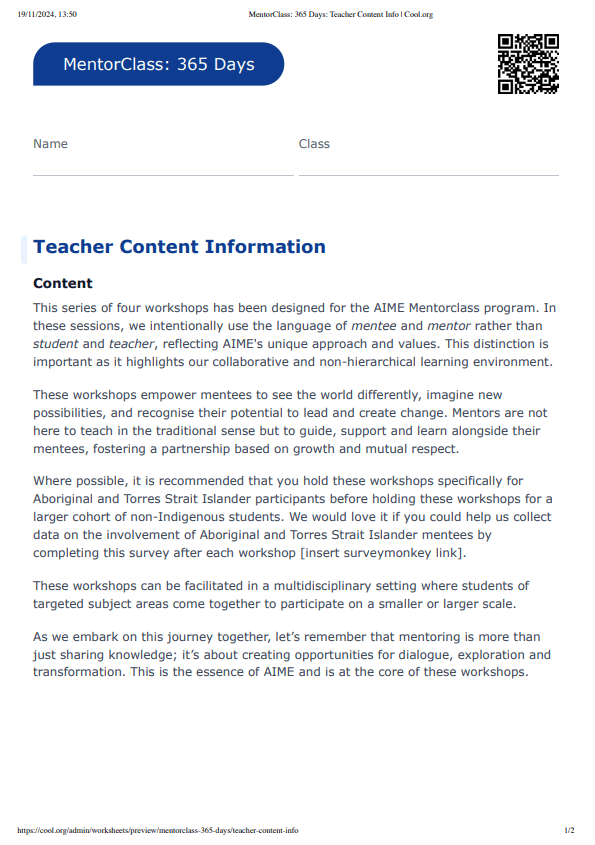Learning intentions:
Students will...
- understand the importance of goal-setting
- set a 365-day goal.
Success criteria:
Students can...
- practice active listening
- write a letter to their dream mentor.

Lesson Plan
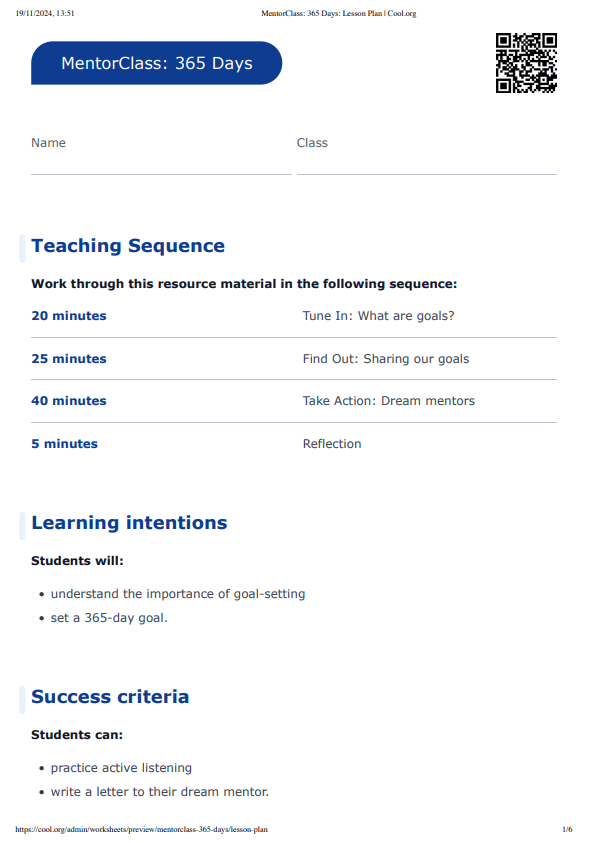
Student Worksheet
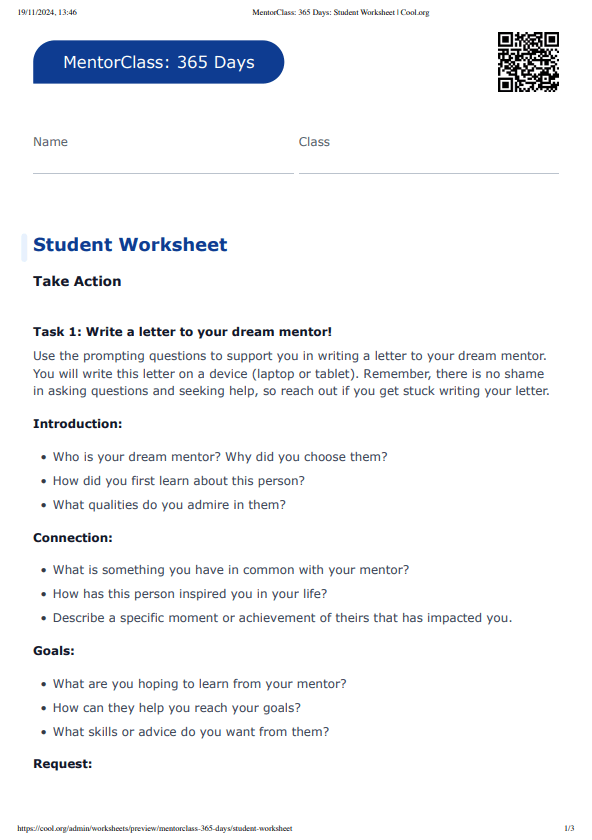
Value Cards
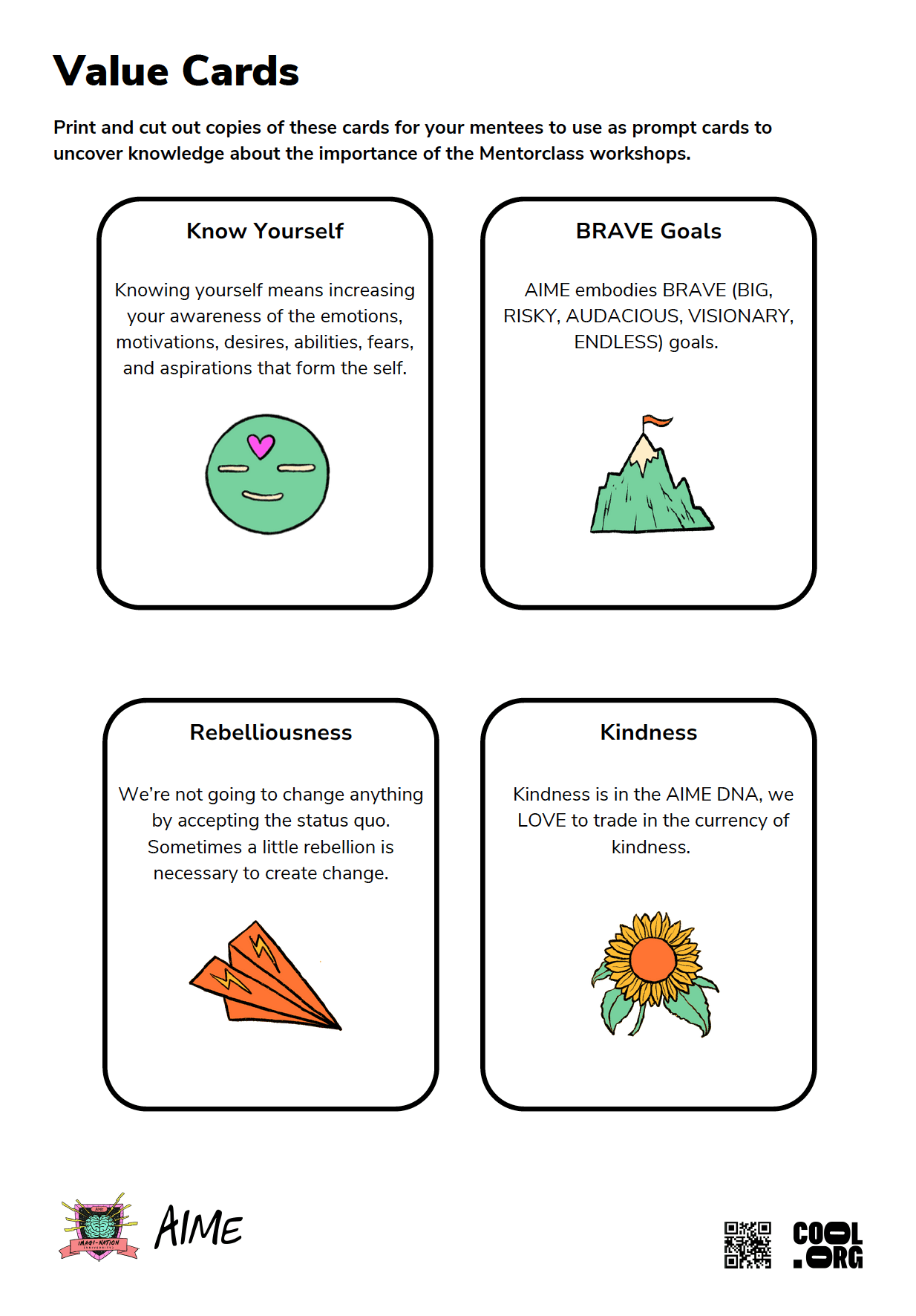
Goal Poster
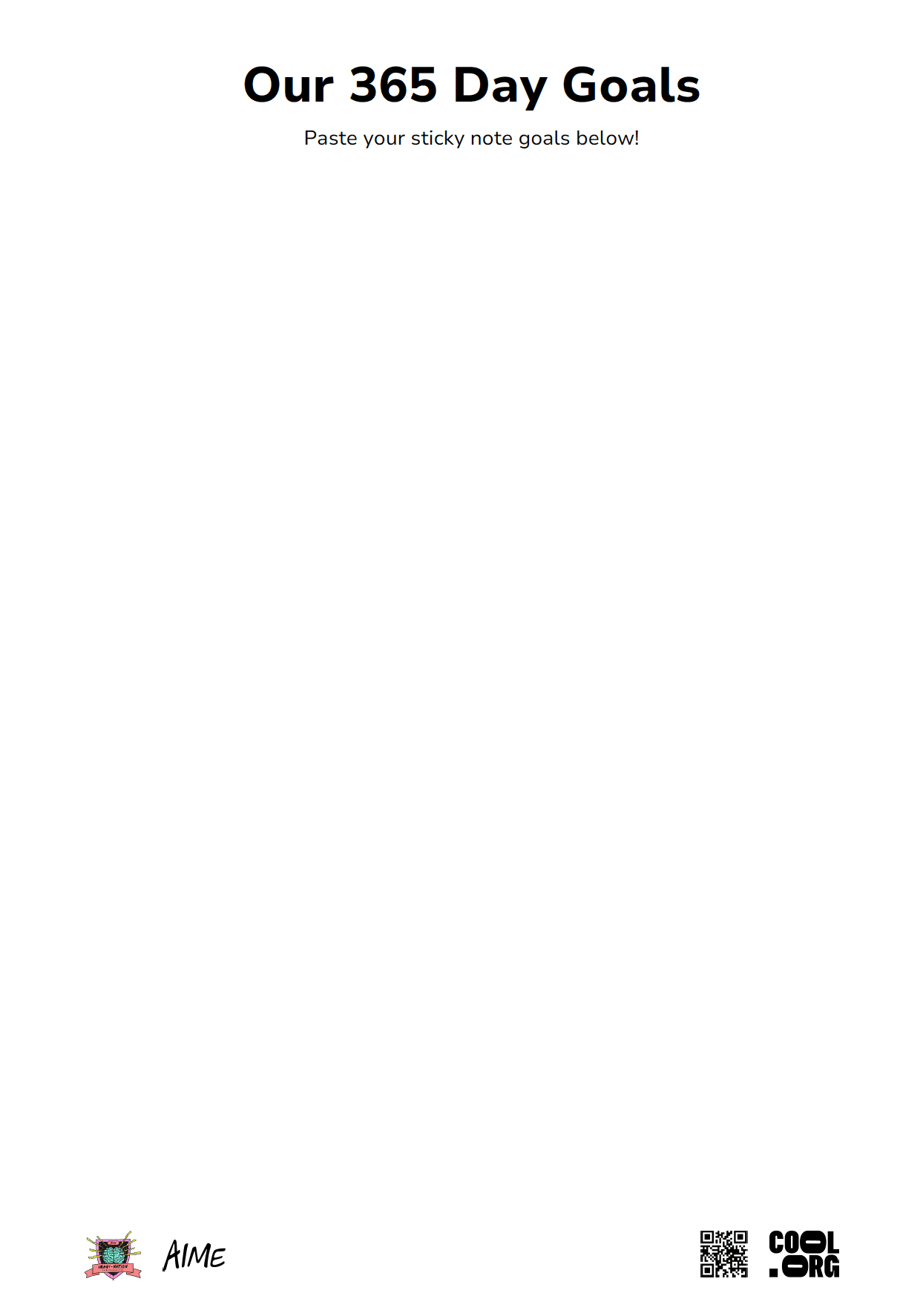
Teacher Content Info
